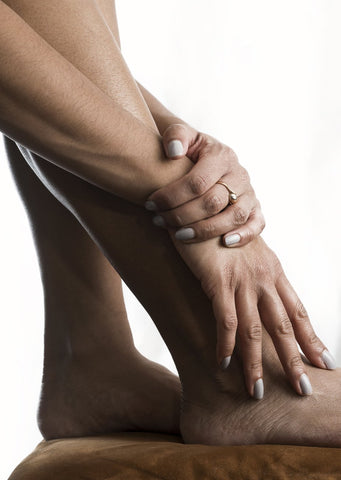
Skin...we all have it...but how much do we really know about the body's largest organ?
Sure, it plays a vital role in detecting hot and cold, regulating your body temperature and protecting your muscles, bones and internal organs from outside infection and disease.
But that’s just for starters.
There is so much more to your skin than you might think. Here are some of the most interesting (and slightly gross) facts about your skin:
- The average person’s skin covers an area of 2 square meters
- Skin accounts for about 15% of your body weight
- There are two types of skin - hairy and glaborous (no hair like the palms of your hands and soles of your feet)
- Your skin has three layers; the epidermis (dead and waterproof), dermis (hair and sweat glands) and subcutis (fat and large blood vessels)
- The average person has about 300 million skin cells. A single square inch of skin has about 19 million cells and up to 300 sweat glands
- Your skin is its thickest on your feet (1.4mm) and thinnest on your eyelids (0.2mm)
- Your skin constantly sheds dead cells, about 30,000 to 40,000 cells every minute!
- Your skin sheds a layer of these dead cells every 24 hours and renews itself about every 28 days
- The average person will shed about 48kgs of skin by age 70
- Sweat is odourless, its the bacteria that makes it pong!
- 4/5 teenagers will get acne

- Some sources estimate that more than half of the dust in your home is actually dead skin. Noice!
- Dead skin comprises about a billion tons of dust in the earth’s atmosphere
- On average, about 14 species of fungi live between your toes
- Every square centimetre of skin on the human body has about 5 million bacteria on it, fortunately, the vast majority of them are harmless. And – there's more bacteria in your mouth than there are people in the world
- Skin that is severely damaged may try to heal itself by forming scar tissue, which is different from normal skin tissue because it lacks hair and sweat glands
- The most common skin conditions are calluses, acne, dandruff, dry skin, skin cancer and cellulite
- Exfoliating is a key ingredient to healthy glowing skin. Dead cells feed bacteria and they also cause your pores to become blocked leading to unhealthy skin
- Some of the nerves in your skin are connected to muscles instead of the brain, sending signals (through the spinal cord) to react more quickly to heat, pain, etc.
- Your skin has at least five different types of receptors that respond to pain and touch
- Changes in your skin can sometimes signal changes in your overall health
These fun facts are just some of the thousands of important aspects of your skin and its health. Our skin care experts have all of the information you need, including how to best care for the health and beauty of your skin, and the advanced expertise and experience to help you protect it throughout your lifetime.


Do you have any scientific reference to back your facts ?